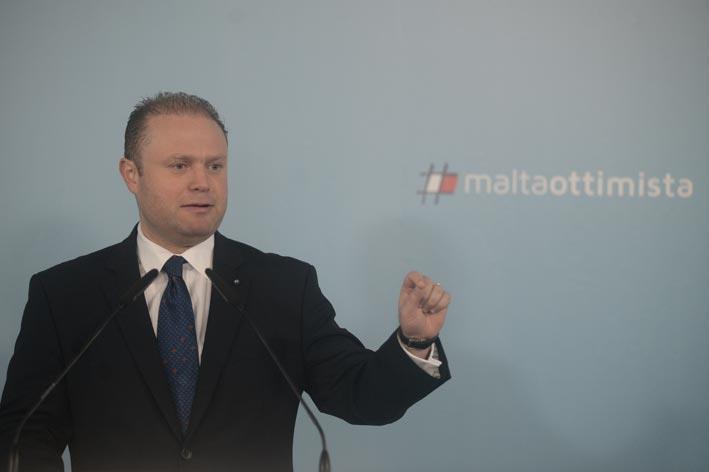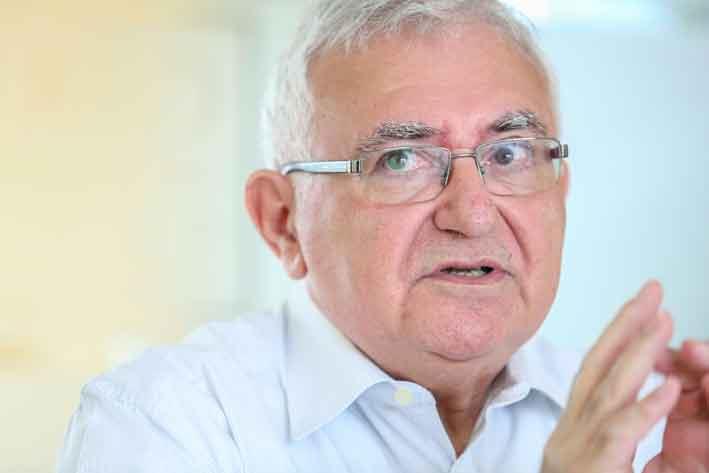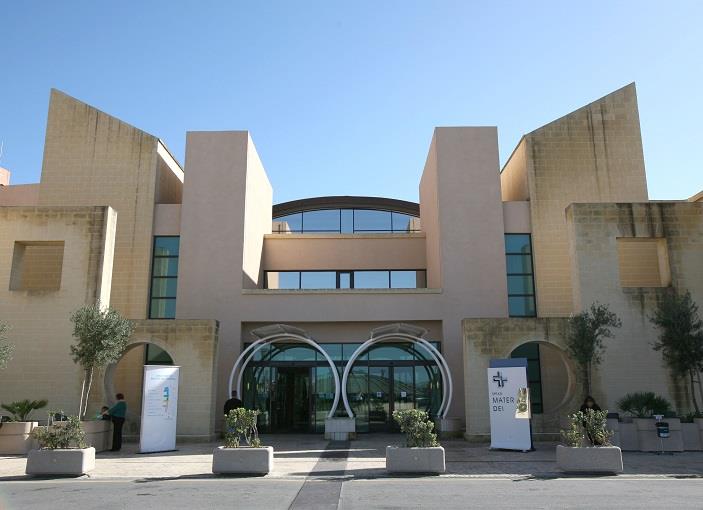The supposed waiver exonerating Skanska from damages for faulty concrete used during the construction of Mater Dei Hospital does not, in actual fact, exist. The waiver that has given rise to so much controversy this week actually referred to a settlement of mutual disputes between the Foundation for Medical Services (FMS) and Skanska Malta; it was not a waiver from the possibility of future litigation over work carried out at the hospital.
In fact, the Project Closure Agreement on the construction of Mater Dei Hospital signed between the FMS and Skanska Malta clearly stipulates that the government still has legal channels available through which it will be able to claim damages from Skanska over the low quality concrete used in parts of the hospital, which the government says will cost some €30 million to rectify.
According to the full contract seen by this newspaper, it is clearly stipulated that: "The works, except those referred to in Article 4, are deemed to be completed and accepted in accordance with the Amended Main Agreement, saving any rights FMS [the Foundation for Medical Services] and SMJV [Skanska Malta JV] may have under Maltese law".
The work referred to in Article 4 deals with work that was still to be carried out by Skanska, which had to do with relatively minor issues that had been left pending - none of which involved the use of concrete.
Following a media report last Sunday which had declared that a waiver in the agreement had exonerated Skanska from any liability for the faulty concrete used at Mater Dei, and that it would be practically impossible for the government to recover funds from the company, the Prime Minister said the government is seeking legal advice on the waiver.

Following the Prime Minister's statement, the government had also issued a statement pledging to fight the waiver tooth and nail, saying: "The price of incompetence and the strong smell of corruption should be paid by those who committed such acts."
It is, however, rather implausible that the government did not have the full Project Closure Agreement in hand at the time, and as such its statement, and further statements over the course of the week, are somewhat inexplicable.
The media report last Sunday had, in actual fact, only cited Article 9 in its "extract" from the last page of the Project Closure Agreement, which stated: "Except as explicitly stated in this Project Closure Agreement, the parties will not be liable whatsoever for all and any further, past, present, or future concerns, claims or disputes, that the parties have or may have in respect of the Amended Main Agreement and each party waives with binding effect all its rights in relation to the Amended Main Agreement except in relation to those rights explicitly stated in this Project Closure Agreement."
This final Article of the agreement, Article 9, refers to the settlement of disputes that the FMS had against Skanska in relation to fines over delays in work and counter claims made by Skanska against the FMS.
Article 9 also opens and closes with the clause "except in relation to those rights explicitly stated in this Project Closure Agreement", a clear reference to Article 5 providing safeguards under Maltese law, which, again, states: "The works...are deemed to be completed and accepted in accordance with the Amended Main Agreement, saving any rights FMS and SMJV may have under Maltese law."

As such, a 'waiver' exonerating Skanska from all liability does not, in actual fact, exist, and the government will be able to initiate proceedings against Skanska in relation to the substandard concrete used in the construction of the hospital.
Former FMS resident Paul Camilleri, who signed the final agreement, stated yesterday: "Following the inauguration of Mater Dei Hospital in 2007, Skanska raised a number of claims against FMS amounting to approximately Lm12,000,000 (€28,000,000) while FMS raised a number of claims against Skanska for work not done according to the Main Agreement that had been entered into.
"The respective claims of each party were discussed at a Decision Group which met in December 2008. Given that the Decision Group failed to resolve the parties' respective claims, the claims were referred to without prejudice [to] settlement negotiations."
On Article 5, he states: "Questions have been raised in the media as to whether the Project Closure Agreement prejudices FMS' rights against Skanska in the light of the reported recent findings by Arup on the quality and grade of concrete used at Mater Dei hospital.

"FMS was advised by its lawyers at the time of negotiations of the Project Closure Agreement that its concerns on retaining the 15-year contractor liability and the liability for hidden and latent defects are protected by the wording in clause 5.1 of the Project Closure Agreement in terms of which: "The Works ... are deemed to be completed and accepted in accordance with the Amended Main Agreement saving any rights FMS and SMJV may have under Maltese law....";
"As a result of the negotiations undertaken by FMS and the conclusion of the Project Closure Agreement, Skanska ceded most of its claims which had amounted to approximately Lm12,000,000 (€28,000,000) save for approximately Lm2,000,000 (€4,700,000) which was accepted by FMS as representing justified additional work."

Dalli 'provided guidance all the way through'
Former finance minister John Dalli yesterday released a statement quoting extracts from an email he had received from Paul Camilleri, in which he says that he had only been informed about the closure of the Project Closure Agreement about six weeks after it was signed.
In his statement, he quotes from the email: "I realize that I have not communicated with you directly regarding the closure of negotiations with Skanska, despite the fact that Brian [St John] advised me that he had briefly informed you about it."
Mr Dalli, however, failed to include the email's next sentence, which shows that Mr Dalli had, in fact, been central to the whole dispute settlement process, which resulted in the Project Closure Agreement and which dealt with the settlement of the ongoing disputes between FMS and Skanska.
The rest of the email, seen by this newspaper, reads, "I feel that the agreement we reached is, by far, a much better conclusion than that which was proposed and rejected by Skanska, albeit informally, in late 2007/ early 2008. Your clear direction and backing were extremely important in our achieving this result. Just in case you had not been forwarded a copy of this 'Project Closure' agreement, I am attaching herewith a PDF copy thereof."
The remainder of the email clearly shows that Mr Dalli must have known of the waiver as it was he who "guided" FMS on its settlement with Skanska.

Paul Camilleri's statement in full
I refer to the current controversy surrounding the reported findings by Ove Arup (Arup) regarding the quality and grade of quality of concrete used at Mater Dei Hospital and to the Project Closure Agreement concerning the Mater Dei Hospital entered into on the 19th February 2009 between the Foundation for Medical Services (FMS) and Skanska International Holding AB (Skanska).
As the former president of FMS and signatory on behalf of FMS of the Project Closure Agreement, the need is felt to set the record straight on a number of salient points, namely:
1. At no point in time prior to the signature of the Project Closure Agreement was any deficiency in the quality and grade of concrete used at Mater Dei Hospital brought to the attention of the FMS board;
2. If any deficiency in the quality and grade of concrete used had been detected and communicated to the FMS board, it would have been raised in its claims against Skanska, as FMS did and addressed accordingly with regards to any other claim that resulted and was brought to its attention;
3. Following the inauguration of Mater Dei Hospital in 2007, Skanska raised a number of claims against FMS amounting to approximately Lm12,000,000 (€28,000,000) whilst FMS raised a number of claims against Skanska for works not done according to the Main Agreement that had been entered into;
4. The respective claims of each party were discussed at a Decision Group which met in December 2008. Given that the Decision Group failed to resolve the parties' respective claims, the claims were referred to without prejudice settlement negotiations;
5. On the 15th January 2009, the FMS board approved detailed terms of a proposed settlement;
6. The next stage was for the lawyers to draft and finalise a settlement agreement. FMS was legally assisted by a reputable law firm;
7. The final settlement agreement, entitled the Project Closure Agreement, was signed by FMS and Skanska on the 19th February 2009. Like all agreements, the Project Closure Agreement needs to be read in its entirety and within its full context and not by taking individual clauses in isolation and out of context;
8. Questions have been raised in the media as to whether the Project Closure Agreement prejudices FMS' rights against Skanska in the light of the reported recent findings by Arup on the quality and grade of concrete used at Mater Dei hospital;
9. FMS was advised by its lawyers at the time of negotiations of the Project Closure Agreement that its concerns on retaining the 15 year contractor liability and the liability for hidden and latent defects are protected by the wording in clause 5.1 of the Project Closure Agreement in terms of which: "The Works ... are deemed to be completed and accepted in accordance with the Amended Main Agreement saving any rights FMS and SMJV may have under Maltese law....";
10. Indeed, and in any event, Article 1725 and 1726 of the Civil Code provide that a compromise shall not extent beyond the subject-matter of a contract and shall only settle the controversies which the parties had in view.
11. As a result of the negotiations undertaken by FMS and the conclusion of the Project Closure Agreement, moreover Skanska ceded most of its claims which had amounted to approximately Lm12,000,000 (€28,000,000) save for approximately Lm 2,000,000 (€ 4,700,000) which was accepted by FMS as representing justified additional works;
12. All the above points, including the required communications, are adequately documented.

Inquiry looking into weak concrete used for Mater Dei reservoirs
The Board of Inquiry headed by Judge Emeritus Phillip Sciberras is widening its investigation into other areas of Mater Dei Hospital to establish whether weak concrete was also used to build water reservoirs.
Sources in the Ministry for Energy and Health told this newsroom yesterday that the investigation took a new twist following the analysis of the Foundation for Medical Services (FMS) report dated 5th May 2010, which had identified problems with water reservoirs that were possibly built using weak concrete.
Correspondence seen by this newsroom between FMS and contractors Skanska Malta clearly show that the costs to repair the reservoirs amounted to €200,000 but the same exchange between the two failed to establish that the problems were due to weak concrete.
Sources within the Ministry told this newsroom that in a letter to FMS, Skanska refused to foot the bill claiming that FMS could not prove that the problems in the reservoirs trace back to bad workmanship on its part.
Since FMS could not prove liability on Skanska at the time the issue was raised, it tapped into its budget approved by the Health Ministry in 2009 and paid for the repairs.
Research carried out by this newsroom revealed that the agreement signed between FMS and Skanska in 2009 provided for €140 million in funds to complete the already delayed Mater Dei project in time, of which only €2 million was effectively used by FMS.
Sources within the Ministry for Energy and Health insisted that it is yet not clear if the problems with the reservoirs at Mater Dei were related to weak concrete, however "it's clear that some people at Mater Dei helping with the inquiry would like the investigation to put the blame on former FMS officials at all costs," the source said.